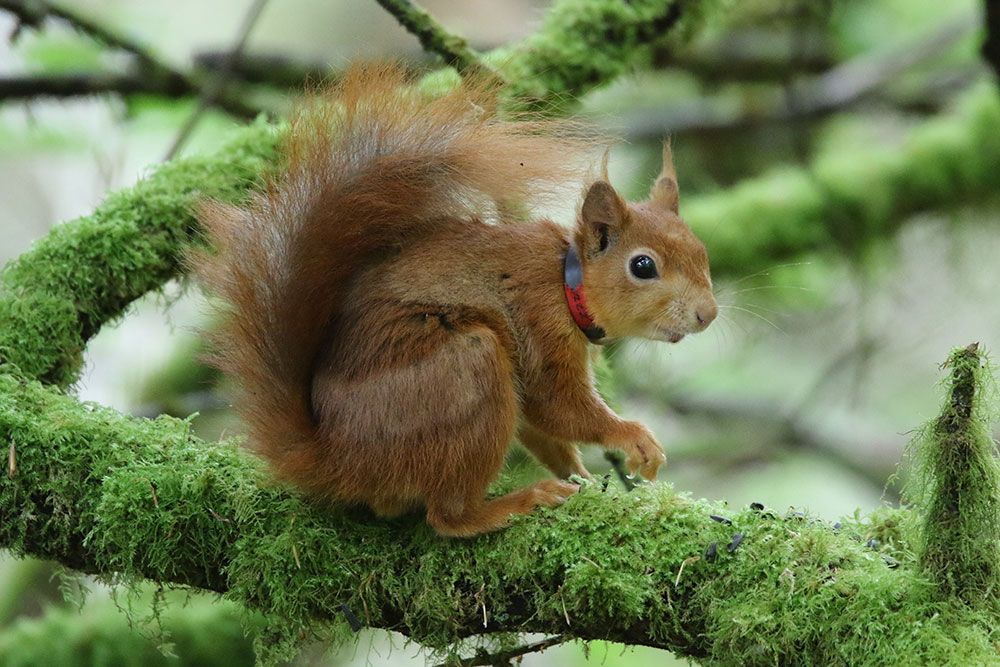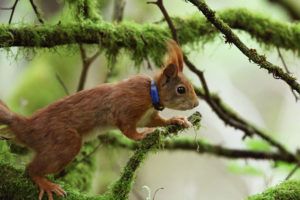Using radio tracking and camera traps to help red squirrels in Wales

Grey squirrels transmit the squirrel poxvirus which has decimated red squirrel numbers in many areas
The problem
Britain’s red squirrels have been in trouble for a long time, and there are now just 140,000 remaining in the wild. Grey squirrels are the problem. Introduced to Britain early last century, they have thrived in our countryside and cities. They outcompete red squirrels and increase their stress levels which then negatively impacts the growth and reproductive rates. Grey squirrels also transmit the deadly squirrel poxvirus to our native reds, which has decimated their numbers in many areas.
The solution
 PTES is supporting intern Katherine Barth who is hoping to bolster red squirrel numbers and strengthen the gene pool in Clocaenog Forest in North Wales in partnership. Working with Natural Resources Wales, Red Squirrels Trust Wales, Red Squirrels United, and the newly formed Clocaenog Red Squirrel Trust, she is releasing wild and captive-bred red squirrels in order to strengthen the remaining small, wild population of red squirrels known to persist in Clocaenog Forest.
PTES is supporting intern Katherine Barth who is hoping to bolster red squirrel numbers and strengthen the gene pool in Clocaenog Forest in North Wales in partnership. Working with Natural Resources Wales, Red Squirrels Trust Wales, Red Squirrels United, and the newly formed Clocaenog Red Squirrel Trust, she is releasing wild and captive-bred red squirrels in order to strengthen the remaining small, wild population of red squirrels known to persist in Clocaenog Forest.
The project is largely run by dedicated volunteers. Radio-collars are fitted to the animals which monitor the squirrels’ health and can opportunistically collect data on their ranging patterns and habitat usage within the forest. Additionally, camera traps and feeder boxes are used. They can record which collared and wild squirrel are visiting and feeding in an area.
12 squirrels have been released into the forest already. At least two released females have also given birth. We hope Katherine’s work will ensure Clocaenog’s red squirrel population flourishes in the years ahead.
This project was possible thanks to our generous donors. Can you help us continue to support projects like this?
